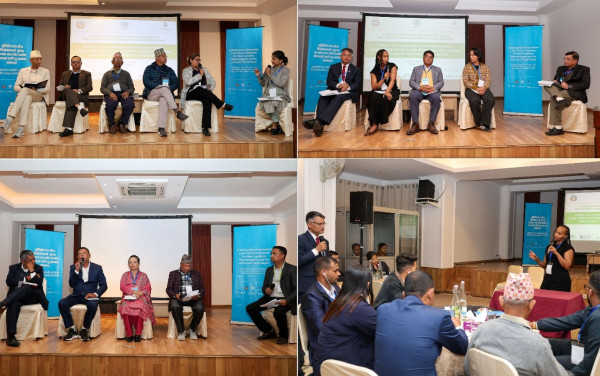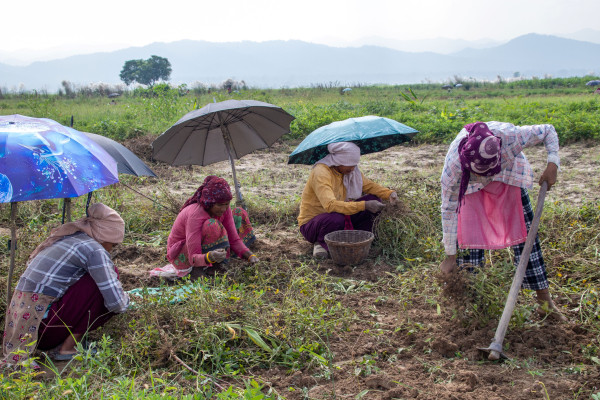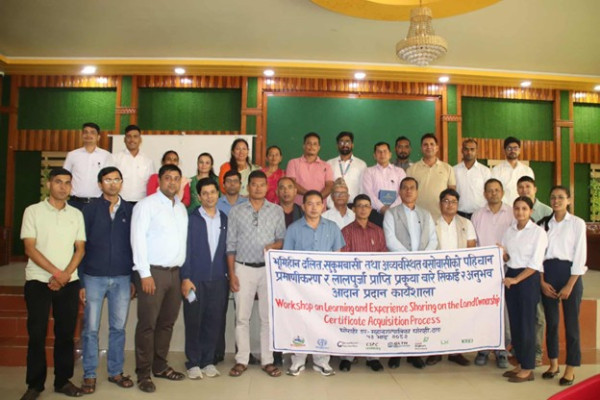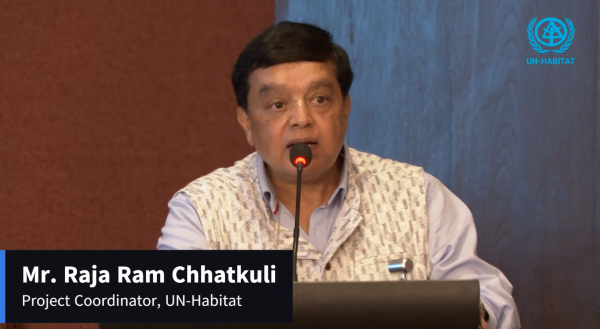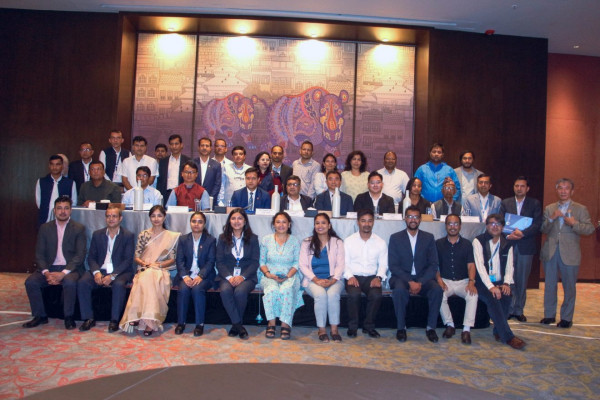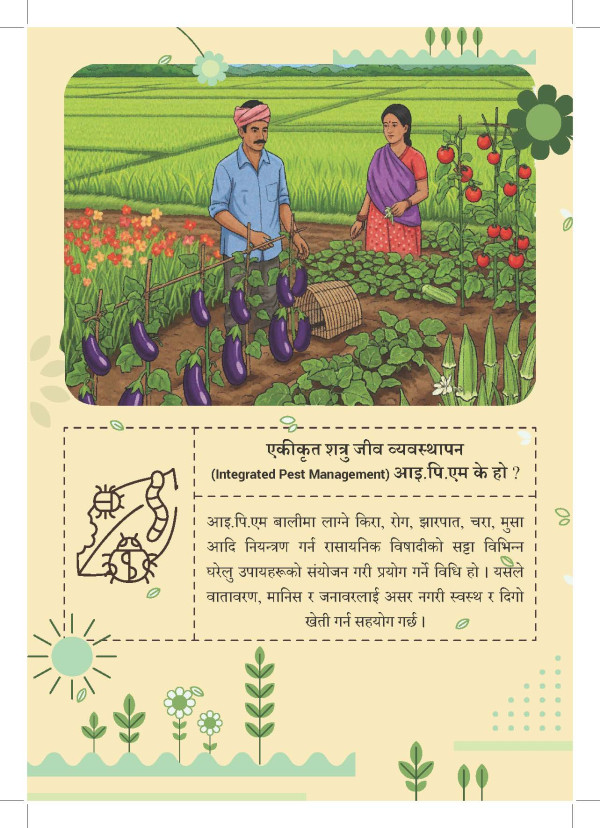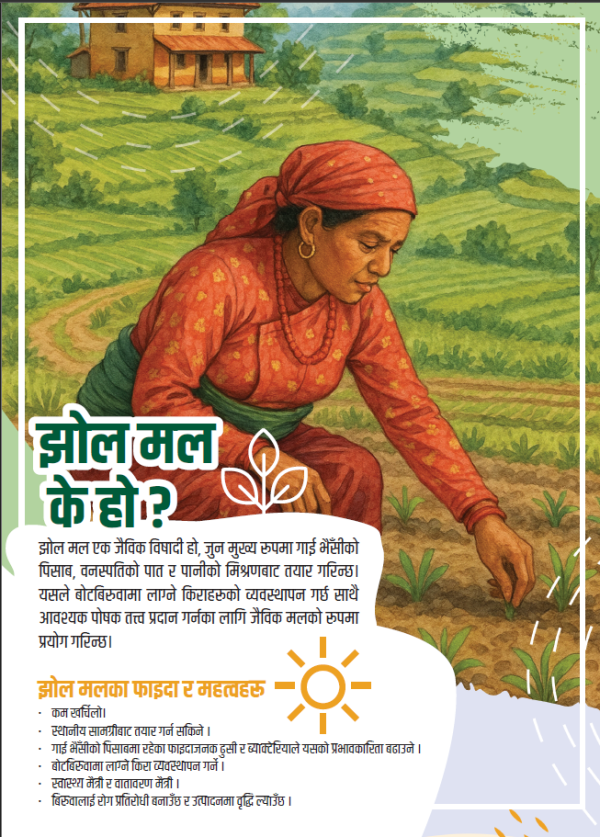A Safety Net of Innovative Land Tenure Solutions for Near-Landless Sharecroppers and for a Greener Rural Nepal (L4ACT)
Duration: 15 June 2023 - 14 June 2027 (48 months)
Funded by: Ministry of Agriculture, Food and Rural
Affairs (MAFRA) of Republic of Korea
In Collaboration with: Ministry of Land Management,
Cooperatives and Poverty Alleviation (MoLMCPA)
Implemented by: UN-Habitat and Global Land Tool Network
(GLTN)
Partners:
- Good Neighbors International (GNI)
- Department of Environment and Resources Research, Korea Rural Economic Institute
(KREI)
- Korea Land and Geospatial lnformatiX Corporation (LX)
Background:
Rural landlessness is a root cause of poverty and inequality in Nepal.
Landlessness also stunts agricultural and economic innovation, and prevents
progress on agriculture, forestry, and other land use (AFOLU) targets of
Nepal's 2nd Nationally Determined Contributions (NDC). The project builds on
the extensive experience through assistance of Global Land Tool Network (GLTN)
in Nepal. Nepal adopted the National Land Policy in 2019 and the 8th Amendment
to the Land Law in 2020, as a pathway to land tenure security to 25% of Nepal's
population estimated living with (near-)landlessness. For this project, a
collaboration is set with 4 municipalities in Lumbini Province of Nepal, in Chure
region (also targeted in the 2nd NOC) focusing on vulnerable landless
households mainly from indigenous community. The Project recognizes that
secured land tenure needs to be coupled with climate-smart agricultural (CSA)
innovation for sustainable livelihood opportunity and poverty alleviation.
Further, it recognizes inclusive and risk sensitive land use through local
collaboration and capacity building will support sustainable development of the
region. For the project, four municipalities in Deukhuri valley are selected.
Objectives:
Contribute to Nepal's climate commitments for green and just development, by introducing innovative approaches to reducing landlessness and improving resilient land use and livelihoods in the 4 municipalities.
Expected Outcomes:
Outcome 1: Improved tenure security of near-landless indigenous people
including women and youth in the target municipalities in Nepal.
Outcome 2: Near-landless indigenous people including women and youth in
the target municipalities have increased access to sustainable livelihoods and
green economic activities.
Outcome 3: The target municipalities plan and promote sustainable,
climate smart and inclusive land use.
Stakeholders:
- Estimated 9,000 households of near-landless, landless and informal land
tenure holders, including women and youth mainly indigenous Tharu communities
(predominant in the Chure region of Nepal)
- 4 municipalities in Deukhuri valley
- Ministry of Land Management, Cooperatives and Poverty Alleviation, and
- Ministry of Urban Development (MOUD) at the federal and the provincial
level National Land Commission
Target Area of Dang District in Lumbini Province:
- Rajpur Rural Municipality
- Gadhawa Rural Municipality
- Rapti Rural Municipality
- Lamahi Municipality
Major Outputs:
- Support to land tenure security of landless and informal tenure-holders
- Improved strategies and tools to support reduced landlessness.
- Strengthened capacity of near-landless indigenous people for
application of green technology and Climate Smart Agriculture (CSA)
- Climate smart and resilient livelihood options demonstrated.
- Safety net of community groups/networks established with enhanced
market linkages and value chain system.
- Community groups and individual beneficiary households with enhanced
access to finance and risk transfer schemes.
- Regularize indigenous groups support conservation, regreening and ORR
on public lands.
- Inclusive and Risk Sensitive Land Use Plans (RSLUP) developed.
- Strengthened capacity of municipal stakeholders to implement inclusive, gender responsive and fit-for-purpose (FFP) land tools, efficient land management and development/ implementation of climate smart RSLUP.
- Knowledge sharing and dissemination of learnings

